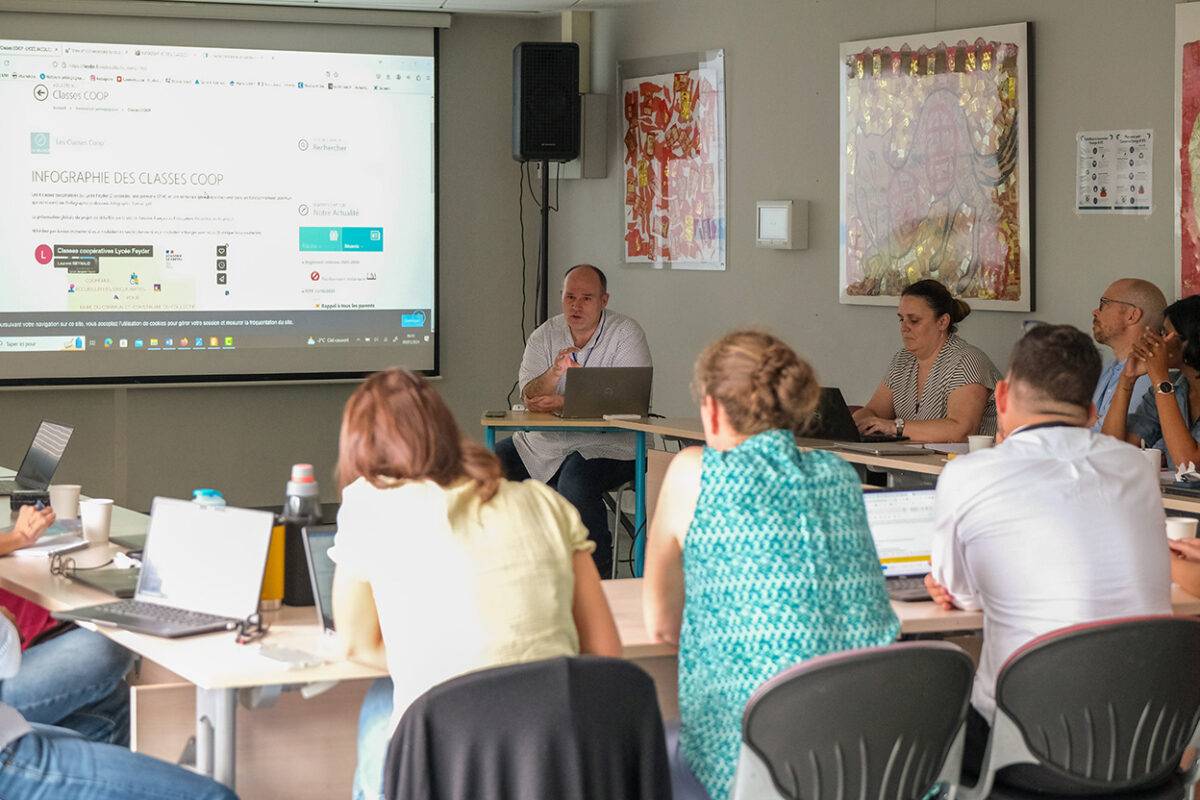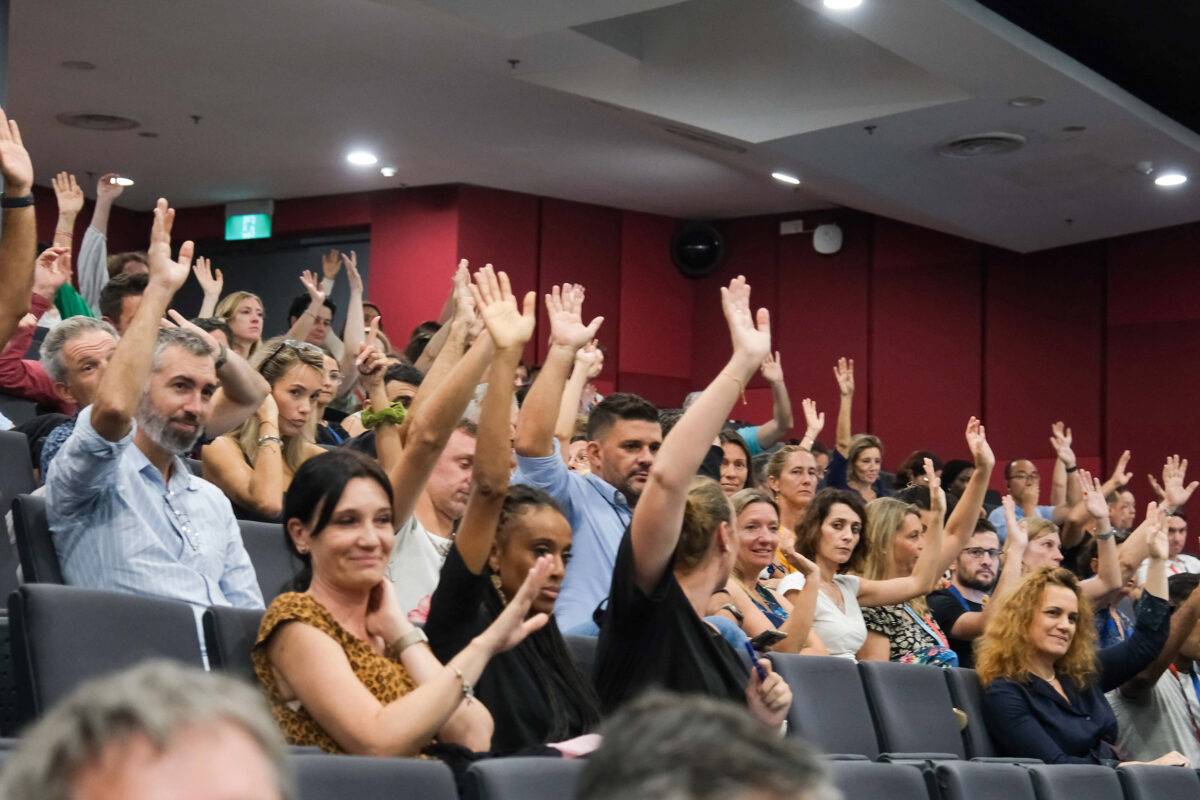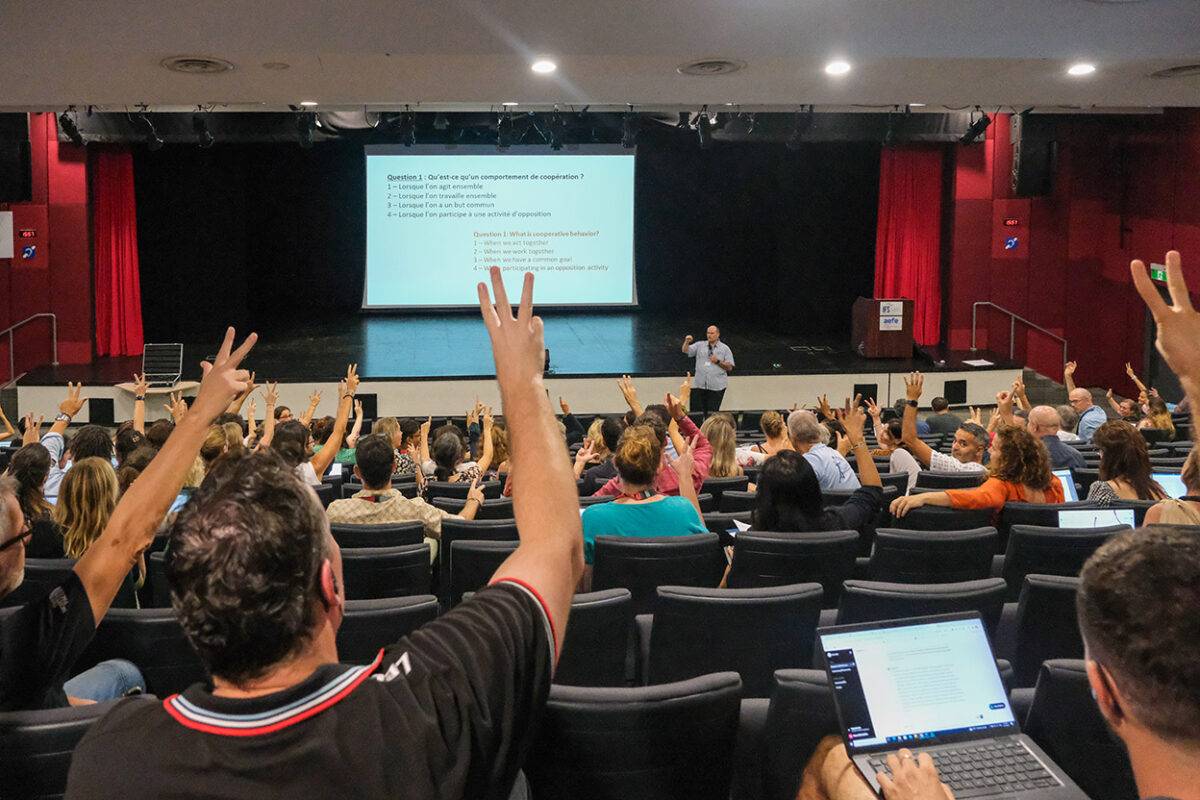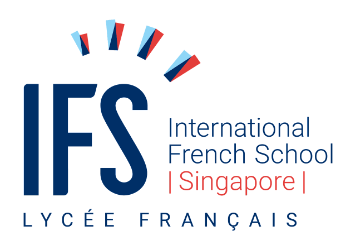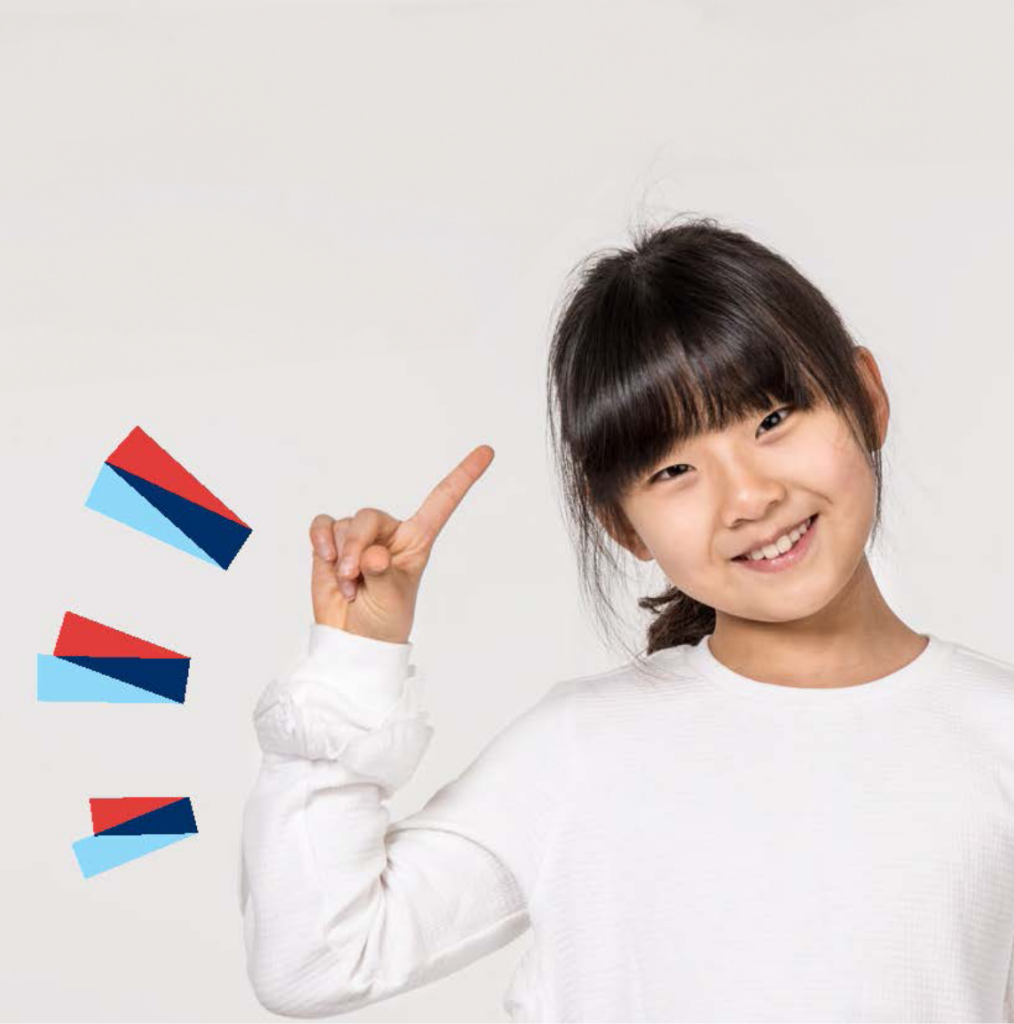Unlocking Student Cooperation: How IFS Teachers are Bringing Cooperative Learning to Life
IFS Programme Sparks Research Partnership with Renowned Expert Sylvain Connac on Cooperative Learning, Fostering “Desire to Learn” Through Teamwork

Student Cooperation: A pedagogical tool to foster the desire to learn.
Sylvain Connac, a teacher-researcher in Educational Sciences at the Paul-Valéry University of Montpellier and LIRDEF (Interdisciplinary Research Laboratory in Didactics, Education and Training), is a French educator and trainer known for his work in the field of education and cooperative pedagogy. Sylvain Connac is also the author of several works focusing on innovative pedagogical practices and cooperative work in educational settings.
As part of the IFS professional development programme, around twenty teachers have enrolled in a research group to collaborate with Sylvain Connac on teaching methods related to cooperative work in the classroom.
After a few virtual meetings with our teachers, Mr. Connac came to Singapore in person to work with them on practical cases with the students. We took advantage of his visit to ask him a few questions:
Can you explain your profession and the main themes of your research?
As a teacher-researcher, my responsibilities revolve around three main areas: teaching duties, university responsibilities, and research activities. My research primarily addresses student diversity, school pedagogies, and, more specifically, the management of heterogeneity. In this context, I have delved into horizontal relationships among students and analysed the role of cooperation in enhancing learning.
I am conducting collaborative research on the theme of cooperation with a group of IFS teachers. I am at IFS to observe and question students about practices where they are encouraged to cooperate during classes. We aim to analyse teachers’ pedagogies based on what students say to discern between what teachers intend and what students understand, thereby resolving misunderstandings.
I video-record the activities and conduct interviews with the students, trying to understand what is going on in their minds as we observe them. As an external observer, students know that I am not there to evaluate them, allowing me to collect and analyse data with other group members.
Through our observations, the teacher can also better appreciate the invariant elements of the learning process, regardless of the students or subjects involved. For instance, we discovered that, before cooperating, students prefer to have some time alone to think about what they will say during the collaboration.
What is crucial is to align these research efforts with the teachers’ professional concerns. We collaboratively reflect on what we are building in terms of subjects, hypotheses, and conclusions for our shared research.
What has been your impression of our school so far?
At IFS, the audience is distinctive, with a cosmopolitan and international character. Students face relatively few learning difficulties and are enthusiastic about the pedagogical proposals presented to them. However, this doesn’t mean that teaching is made more accessible. There’s always room to improve teaching methods, pay attention to details, and deepen relationships.
What is the difference between the French curriculum and other international education systems? How do you conceive the future of school?
It’s difficult for me to compare different systems because there are many disparities even within the same institution.
Regarding the French system, one distinctive feature is the emphasis on developing reflexivity. Reflexivity is a process in which the student questions themselves (as if looking into a mirror) and is questioned by others (who thus reflect an image back to them) about their own actions and discourse. A French school also aims to bring meaning to learning, avoiding prioritising mechanised, routine, and systematic activities.
The school of tomorrow should remain a physical place, a community. Digital solutions cannot replace school because learning is more accessible with others. The school of tomorrow should be a school of relationships. It is easier to learn in a relationship with other humans, with teachers having faces, bodies, and a presence, recognising the importance of what unfolds in interactions with others.
Why did you choose to specialise in the subject of cooperation?
In France, there is talk of a ‘civic rearmament of youth,’ reintroducing authority and submission to teachers. However, the real issue in the pedagogical relationship is that it should be built on mutual respect rather than authority. Reciprocity is crucial. When students appreciate a teacher, they speak not of respect but of trust.
The challenge for education concerning relationships involves developing connections because it is easier to learn with others, not necessarily just adults.
What’s interesting in a group is the potential for a conflict of ideas, which allows for examining the robustness of one’s ideas and then seeking answers to questions.
It is essential to continue to foster and encourage the need to learn. The knowledge taught in school should come in response to students’ questions, ensuring effective learning. We want to avoid students arriving at school seeking answers to questions they don’t have.
Unlike collaborative work, which can increase inequalities, cooperative work has the advantage of stimulating efforts to achieve individual goals rather than a common goal.
What are the challenges of cooperation?
The significant challenges of cooperation lie in resisting two everyday temptations among students. First, there is the temptation of avoidance, where the student, faced with a problem, seeks to bypass the difficulty by turning to more competent peers to complete the task on their behalf. Secondly, there is the temptation of procrastination, where the student, having time, chooses to defer the execution of the task to a later time.
Teachers are thus confronted with the challenge of engaging students in cooperative activities by explaining that any work done individually or collaboratively constitutes a valuable contribution to lighten their future workload. The idea is to demonstrate to students that cooperation will help them learn.
Building a Learning Community: IFS Takes a Collective Leap Forward with Sylvain Connac’s Expertise
In summary, the collaboration between IFS teachers and renowned educational scientist Sylvain Connac signifies a significant leap in advancing cooperative learning within our educational landscape. Connac’s insights, gathered through a comprehensive research partnership, offer valuable perspectives on pedagogical practices that ignite a genuine desire for learning. The ongoing commitment to refining teaching methods, coupled with Connac’s observations during in-person interactions with students, underscores a collective dedication to unravelling the complexities of cooperative work.
Sylvain Connac’s reflections on IFS as a distinctive and cosmopolitan community highlight the importance of refining teaching methods and deepening relationships. His emphasis on the unique characteristics of the French curriculum and the future of education underscores the need for reflexivity, meaning-making, and the irreplaceable role of physical schools as vibrant centres of learning. As we navigate the challenges of student cooperation, the IFS community remains steadfast in its pursuit of innovative pedagogies that address current educational needs and contribute to our students’ holistic development.
